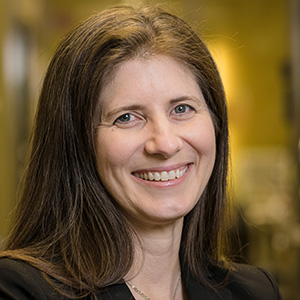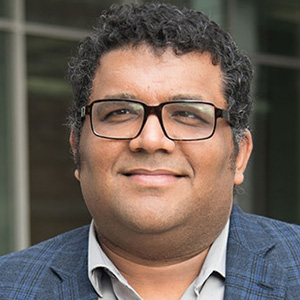Engineering the future with synthetic biology
Researchers have long worked to decipher the complexity of biological organisms and processes, like decoding a language or reverse-engineering a sophisticated system.

While some scientists focus on understanding the fundamental mechanisms of biology, others apply this knowledge to address human needs and challenges in medicine, agriculture, manufacturing and the environment by designing novel biological components and systems that do not exist in nature. Learn more about this innovative field at the American Society for Biochemistry and Molecular Biology Annual Meeting’s symposium on synthetic biology.
The symposium was organized by Danielle Tullman–Ercek, a professor of chemical and biological engineering at Northwestern University, and Vatsan Raman, an assistant professor of biochemistry at the University of Wisconsin–Madison.

On Sunday, April 13, hear expert talks on using synthetic biology to address human challenges. Speakers will discuss cellular sensors that detect and respond to changes in gene activity as well as engineered genetic control systems that enable dynamic cellular reprogramming. This session will also explore phage-based approaches to eliminate or alter bacteria within complex microbial communities, such as the human gut.
On Monday, April 14, environmental health takes center stage. Talks will cover topics such as manipulating soil microbes to improve plant drought tolerance, engineering minimal synthetic cells containing only essential genes and designing bacterial microcompartments for applications in medicine, materials science and sustainable chemical production.
Finally, on Tuesday, April 15, a dedicated session on enabling technologies will highlight the tools and methodologies driving synthetic biology forward. Speakers will delve into high-throughput approaches for engineering bacteriophages, methods for measuring protein ensemble features to design conformation-shifting proteins and other cutting-edge innovations.
“We are on the cusp of a revolution in engineering biology that will transform biomanufacturing, agriculture, sustainability and medicine,” symposium co-organizer Tullman–Ercek said during a seminar at DePaul University. “The real challenge lies in balancing cost, risk and speed.”
Check out the full program schedule to get the most out of #ASBMB25.
Enjoy reading ASBMB Today?
Become a member to receive the print edition four times a year and the digital edition monthly.
Learn moreFeatured jobs
from the ASBMB career center
Get the latest from ASBMB Today
Enter your email address, and we’ll send you a weekly email with recent articles, interviews and more.
Latest in Careers
Careers highlights or most popular articles

Sketching, scribbling and scicomm
Graduate student Ari Paiz describes how her love of science and art blend to make her an effective science communicator.

Embrace your neurodivergence and flourish in college
This guide offers practical advice on setting yourself up for success — learn how to leverage campus resources, work with professors and embrace your strengths.

Upcoming opportunities
Apply for the ASBMB Interactive Mentoring Activities for Grantsmanship Enhancement grant writing workshop by April 15.

Quieting the static: Building inclusive STEM classrooms
Christin Monroe, an assistant professor of chemistry at Landmark College, offers practical tips to help educators make their classrooms more accessible to neurodivergent scientists.

Unraveling oncogenesis: What makes cancer tick?
Learn about the ASBMB 2025 symposium on oncogenic hubs: chromatin regulatory and transcriptional complexes in cancer.

Exploring lipid metabolism: A journey through time and innovation
Recent lipid metabolism research has unveiled critical insights into lipid–protein interactions, offering potential therapeutic targets for metabolic and neurodegenerative diseases. Check out the latest in lipid science at the ASBMB annual meeting.

